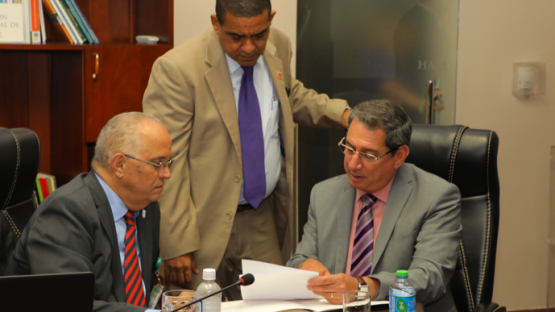Authorities in the Dominican Republic are improving the radiation protection of workers in line with IAEA safety standards, according to conclusions made by an IAEA Occupational Radiation Protection Appraisal (ORPAS) held in the country from 27 August to 5 September.
The team, led by Flavio Andrada, senior inspector at Argentina’s national regulatory authority, found the country’s radiation protection measures largely in line with the IAEA safety standards.
“The findings were very well received and are expected to trigger actions to improve safety,” Andrada said.
The team’s recommendations for improvements included encouraging the national authorities to further improve workers’ radiation safety by updating the licensing process, improving safety assessments in facilities and activities and promoting safety culture. The team also recommended that the country strengthen its support to its technical support organizations, and develop a calibration laboratory. The ORPAS independently assess and evaluate a country’s legal infrastructure against the IAEA safety standards, an international benchmark in occupational safety.
“ORPAS appraisals are an effective tool to help countries ensure occupational radiation protection,” said Peter Johnston, Director of the IAEA's Division of Radiation, Transport and Waste Safety.
The seven-member ORPAS team of radiation experts from Argentina, Costa Rica, Brazil, Cuba and the IAEA visited 25 health centres, technical support organizations, ore mines and other facilities with occupationally exposed workers. The Ministry of Energy and Mines and the National Energy Commission of the Dominican Republic helped coordinate the mission.
Worldwide, 23 million people are exposed to ionizing radiation as a part of their jobs. Radiation protection measures help keep them safe, thereby also enabling the use of radiation, radioactive materials and nuclear energy for beneficial purposes in fields such as medicine, industry and agriculture.





